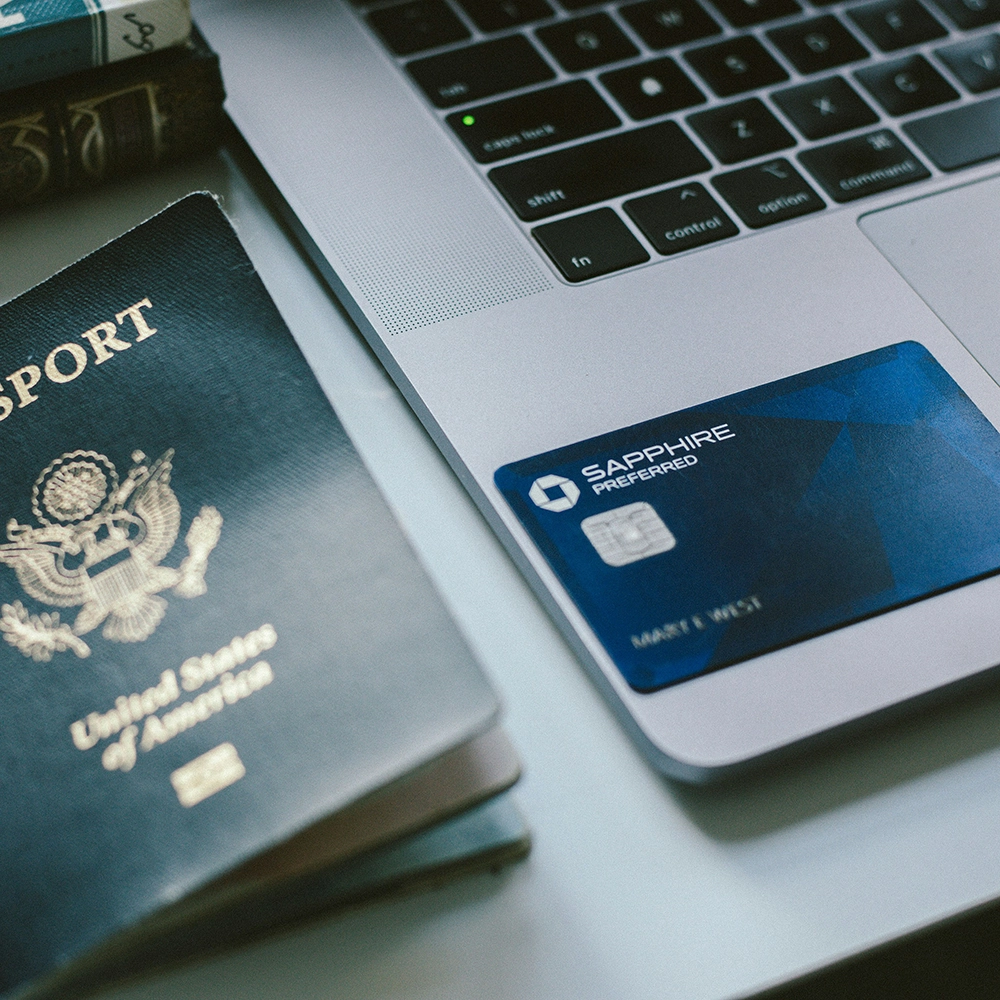Travel rewards cards. Love ‘em or hate ‘em, they’re a valuable tool for today’s financially savvy traveler.
There are dozens of travel rewards credit cards on the market, each promising the same outcome: with just a swipe, your travel experience will be cheaper, more glamorous, and hassle-free.
You probably know that some credit cards offer travel insurance. That alone can be an attractive benefit for adventurous cardholders. But it’s important to remember that not all cards are created equal. Travel insurance perks can vary greatly from one credit card to the next, not to mention that the travel insurance provided by a credit card often doesn’t measure up to the coverage a travel insurance company offers.
Some travel rewards cards provide full coverage for a last-minute cancellation, while others limit benefits to accidental death or dismemberment. Those terms and conditions are found in the cards’ fine print, so make sure you take the time to read and understand them if you’re going to rely on your credit card.
As you prepare for your next big trip, it’s time to take that fine print seriously. Think through any benefits offered by your credit card and consider the limitations of that coverage.
Not sure if your credit card company will have your back while you travel? Here are a few questions to keep in mind.
1. Does My Credit Card Provide Travel Insurance?
Most credit cards aren’t a substitute for a true travel insurance plan. Credit card perks tend to be secondary insurance, meaning that they are a supplement — not a replacement — for fuller coverage.
The simplest way to learn about insurance offerings is by calling the number on the back of your card or visiting your credit card company’s website for a detailed breakdown of your coverage.
Personal finance and travel websites are another great way to learn about the travel insurance provided by different cards. Some of these sites post regular roundups of top travel cards, and they describe key benefits in a concise, easy-to-understand way.
A word of caution: Online articles are a great starting point, but they aren’t always written by financial professionals. These resources can also become outdated as products change. Refer back to your credit card’s website for the latest information and talk to a product specialist if anything seems unclear.
2. Does a Travel Rewards Credit Card Make Sense for Me
Let’s say you’ve done your research, and you find that your current credit card doesn’t have the travel benefits you were hoping for. If you’re a frequent traveler, does it make sense to upgrade to a travel rewards card for the insurance? In most cases, probably not.
The top travel rewards credit cards come with impressive perks, but those benefits come at a premium. Annual fees alone can cost upwards of $695, you may be required to spend thousands of dollars on “eligible” purchases (which inevitably won’t be something as simple as groceries), and most leading cards require a “Good” to “Excellent” credit score to start with.
When you consider the costs associated with these top-tier cards, the so-called “free” travel insurance doesn’t seem so free.
“But I would also get free miles and other travel perks!” you say. Great! If that offsets the cost of the annual fee, that could be a good decision for you. However, you need to be prepared to pay off your balance each month. Like we said in our blog about travel subscriptions, if you don’t pay off the full balance each month, you’ll end up paying more in interest than you’ll ever make in rewards. That math doesn’t work in your favor.
What Does My Credit Card Cover?
Maybe your credit card provides travel insurance and maybe that travel insurance seems adequate. You’ll be covered, right? It might not be that simple. Before you get too comfortable, make sure you understand what those benefits entail.
Here are a few key terms you might encounter.
Trip cancellation
This kind of coverage is only available on select credit cards. A trip cancellation benefit can reimburse you for nonrefundable, prepaid trip expenses if you cancel your trip for a covered reason. With credit cards, that list of covered reasons can be short.
This is similar to what you’ll find in trip protection plans from a company like Seven Corners, but exclusions and limitations can vary. No matter where you get your trip cancellation benefits, be sure to understand these exclusions.
Trip delay
In general, no matter where you get your insurance, this benefit can cover the cost of necessary expenses such as food and lodging if your flight is delayed. There is likely a requirement that the flight must be delayed a certain length of time, so look for those kinds of details.
When it comes to credit cards, the list of excluded events can be extensive, meaning there aren’t many scenarios in which you’ll be reimbursed for a trip delay. Don’t be surprised if your claim is denied because your flight delay was weather-related, for example. If you get stuck because of a storm, you’ll likely be out of luck when it comes to getting money back.
Baggage loss or delay
This coverage can reimburse you for essential purchases, like clothing and toiletries, if your luggage is delayed by the carrier (AKA airline, train company, or cruise line). It can also cover the cost of replacing lost luggage and belongings, up to a defined maximum.
Rental car coverage
Many cards will cover some portion of the cost if a rental car is stolen or damaged. This includes collision repair, meaning that if you rent the car with that card, and decline the car company’s insurance, your credit card may cover the cost of repairing the damaged rental. Oftentimes, this is a lengthy process.
Your regular car insurance might provide similar coverage, so decide if this is an important benefit for you.
It’s important to note that liability and injuries usually are not included in credit cards’ rental car coverage. If you hit someone else, your card’s insurance won’t cover you. If someone steals your wallet or luggage out of your rental car, again, your card likely won’t reimburse you for the loss or to replace items in your luggage.
Travel accident insurance
If you’re in an accident on a common carrier, like a plane, cruise ship, or train, your card may provide benefits to you or your loved ones.
Some people describe this as “life insurance lite.” If you have some other medical emergency, such as getting the flu or breaking an ankle, your credit card is not likely to pay those medical bills. Medical coverage is one area in particular where traditional travel insurance from a company like Seven Corners habitually provides better protection.
Of course, coverage can vary by product and company. Make sure to review your card’s details to learn what’s available.
4. What Do Travel Credit Cards Not Cover?
All of those benefits might sound fantastic, but you should always read the fine print before making any major decisions. Remember that trip cancellation coverage? It may come in handy if you have a life-threatening illness, but might not help if you suddenly have a mandatory meeting at work. And while travel accident insurance from a travel card might sound like a great benefit, it typically only covers death or major dismemberment — like loss of a limb or an eye — when you’re traveling on a common carrier.
Another key detail: Most cards only offer coverage if the ticket or experience was purchased with that card. While your flight might be covered if you paid for it using your travel card, the hotel fare that you and your friends split on Venmo probably isn’t.
Journalist Jeri Clausing knew this last detail even before she got stuck in Paris during the big CrowdStrike outage of 2024. Although she thought she’d get a lot of her money back for cancelled and changed travel plans, either from her airline or her credit card’s travel insurance, it was a major headache to track so many insurance plans, sets of receipts, and claims.
Writing for AFAR, she said she “realized that trying to sort out refunds for canceled flights and expenses is about as much fun as doing my taxes. And don’t even ask how much time I have spent on hold.”
One way around that is to choose travel insurance that protects all portions of your trip, from flights to hotels to extra meals if you get delayed, no matter how you paid for it. Simplify your life with a single plan and a single claim in the event of the unexpected.
5. What Risks Are Associated with My Trip?
No two travelers are the same, and neither are their trips. That’s why it’s important to think through any risks you could encounter when you’re on the road. After all, a visit to a hot spring in Iceland has different risks than a cross-country skiing trip to the same destination.
Understanding what health, safety, climate, and geopolitical events could impact your trip will help you make an informed decision about the kind of trip protection you might need.
Who Has the Best Travel Insurance?
After walking through the questions above, you might be wondering if there are other ways to keep yourself safe without breaking the bank. That’s where travel insurance — designed and provided by experts in trip protection — could make all the difference.
Seven Corners Trip Protection has many of the same benefits your credit card offers, plus more. And because Seven Corners offers a variety of plans, you can choose the benefits that are most important to you, not just the ones a credit card wants to provide.
One of the main reasons to consider buying travel insurance is the medical insurance it can offer. If you get into a car accident in Peru, your credit card’s insurance might not cover your emergency medical bills. Beyond that, your personal medical insurance typically won’t cover you outside of the United States, leaving you responsible for a hefty bill. Medical coverage is an important measure to ensure that a ruined trip doesn’t also lead to financial ruin.
In the event of a life-threatening situation, Seven Corners Trip Protection also offers emergency medical evacuation coverage. If medically necessary, this enables you to be transported to a facility where you can receive appropriate care, and a loved one can be flown to your bedside while you recover.
Travel can be unpredictable, so why leave the outcomes up to your credit card company’s fine print? If your travels take you far away from home, dedicated travel insurance is a purchase worth making.
Contact Seven Corners’ team of licensed (and expert) agents or get a quick quote online for travel insurance you can depend on, no matter where your travels take you.



